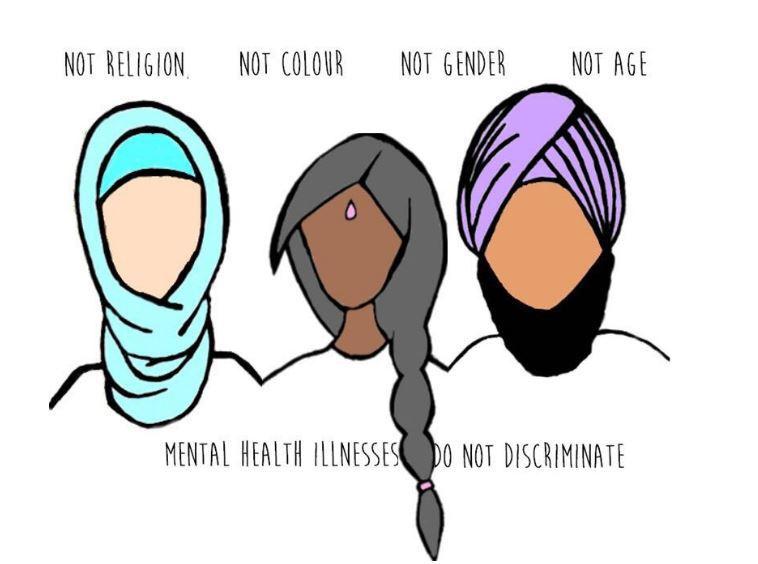Being South Asian and the problem of stigma
Opening up about mental health issues is not something that comes easily to anyone, especially not someone from a South Asian background. I was born in India in a small town, before moving to the UK at the age of three. I often visit my family in India and I have noticed, over the years, that the disparity in mental health provisions and education between the UK and India have become increasingly prominent. The deep-rooted stigma that has been ingrained into the culture for centuries is not currently something that is being dealt with effectively. This is reflected in India’s suicide rates. According to the World Health Organisation (WHO), India’s suicide rates in 2016 were at 16.3 people per 100,000 people for both sexes (17.8 for males and 14.7 for females) and in 2000, they were at 17.4 (18.6 for males and 16.0 for females). To put this into perspective, the UK’s suicide rates in the same year were 8.9 per 100,000 people.

So what causes this difference? The main culprit is the extreme stigmatisation of mental health problems. It can sometimes be difficult to understand just how much of an impact stigma has on someone and how much it can cloud the minds of not only the sufferer but also those that care about them. Having a mental illness is such a taboo topic in a lot of Indian and South Asian households that people try to hide it from their community, often in the name of upholding their reputation or social status, making it all the more difficult for the person suffering to access the help that they need. The stigma causes them to think that those that are suffering from mental health issues are ‘weak’ or just ‘making excuses’ and these ideals are being fed into the next generations.
When speaking to friends who are also from South Asian backgrounds, I have realised that a lot of us have had unnervingly similar experiences in terms of how we’ve dealt with situations in which we were struggling mentally. I’ve realised that often the stigmatised beliefs linger in the back of our minds when thinking about our mental health and cause us to subconsciously push aside emotions that affect us. Even though we live in a country where mental health provisions are much more available and young people, like us, are more encouraged to speak up about problems, we are still at the mercy of the very stigma that is faced by others in South Asian countries despite not physically being there, showing just how widespread the issue is.

With all of that being said, I do believe that there is a solution: education. The key reason why we see stigma in a lot of eastern cultures is due to the lack of knowledge and understanding about mental health problems such as depression, anxiety, bipolar disorder, etc. If communities can be educated about what different problems entail and how they affect people, I believe that the topic can become less taboo and encourage conversations about mental health. This, in turn, can result in a culture where sufferers are supported in their mental health journey rather than forced to hide.

Images from Health Collective India and The Guardian and NPR



Those statistics are really shocking, comparing India’s suicide rate to here in the UK, I had no idea that the rates were that high in India. Really interesting and emotive blog, it’s so important that you’re starting to have the necessary conversations to address and unravel the stigma.